There’s never a dull day in Malaysian politics.
With everything that’s happening, it’s pretty hard to keep up but since the country’s governance affects all of us, we have to at least try.
The latest in the saga is the issue of 101 projects awarded through direct negotiation during the Pakatan Harapan (PH) tenure amounting to RM6.6 billion.
PH has since come out and said that the bulk of the contract given through direct negotiations wasn't by them, but what started the whole drama?
Direct negotiation, in this context, simply means a project was given to a company without them having to go through an open tender process where multiple companies get to give their quotations and the government pick the best out of the ones presented.
Although direct negotiation is not illegal, it does open up the possibility of cronyism, corruption and other probems..jpg)
Finance Minister Tengku Zafrul Aziz mentioned the direct negotiation projects during his winding-up speech of the Temporary Measures for Government Financing (COVID-19) 2020 at the parliament last week, pointing out that PH government had promised to stop such practices.
He, however, also clarified that all the projects followed the direct negotiation exception rules (we’ll explain this later).
War of words started, with PH members asking the minister to release the full list, to which he did about two days later:
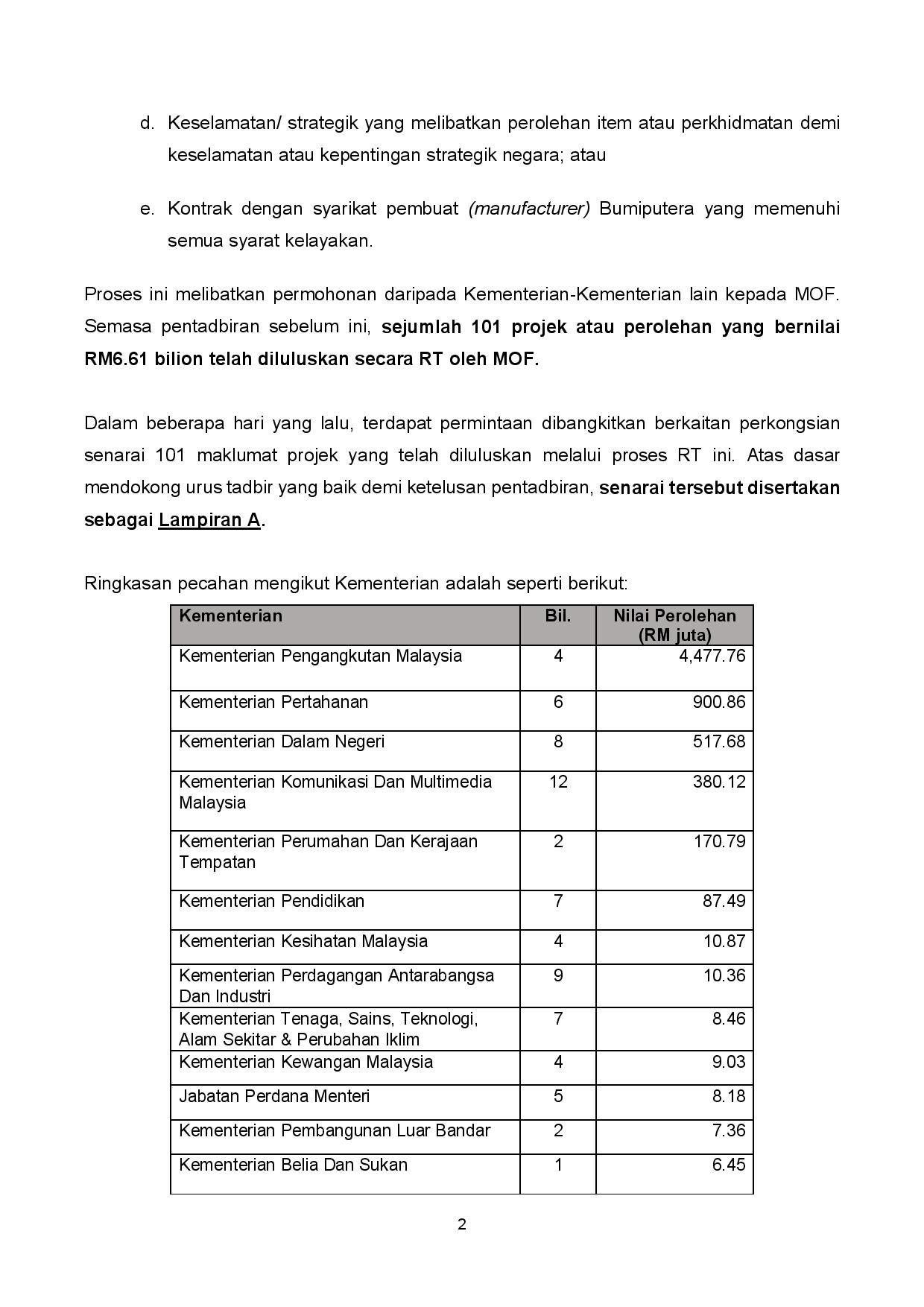
It’s a long list and for the most part, we couldn’t determine if the price paid were fair.
Maybe some day we will get in touch with the dozens of experts we will have to contact to get more clarification but for today, let’s just look at the most talked about points and some that we found just a little bit weird.
The bulk of the RM6.6 billion project involves the Transport Ministry, with RM4.48 billion worth of projects parked under their Ministry. Out of that, RM4.47 billion Klang Valley double-tracking project that went to Dhaya Maju LTAT Sdn Bhd.
According to former transport minister Anthony Loke, the project was not approved by PH, but was approved by the Barisan Nasional government in 2018.

He had also said that the original contract was priced at around RM5.26 billion, but the amount was reduced by 15 per cent after re-negotiations when the government changed hands.
The rest of the amount went towards three other projects, including the Langkawi International Maritime and Aerospace Exhibition (LIMA).
The Defence Ministry used up the second highest amount at RM900.86 million, for six projects involving aircraft maintenance.
This is followed by the Home Ministry which spent over RM500 million on eight projects.
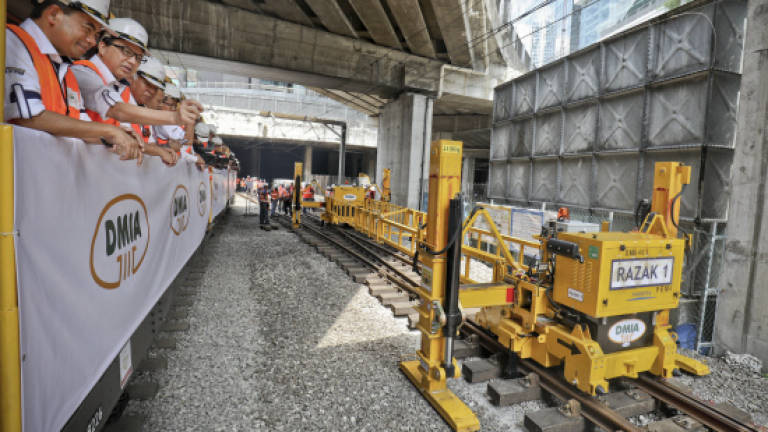
There doesn’t seem to be any hanky-panky when it comes to the Ministries that have spent a lot on direct negotiation projects but let’s wait for the Malaysian Anti-Corruption Commission (MACC)’s report before we decide either way.
Although most of the projects in the list seem like it will survive scrutiny (again, it's best that we wait for the report), some are still questionable.
One of the most discussed projects is the buying of “A Better World: Actions and commitments to the Sustainable Development Goals Volume 5” by the Economic Affairs Ministry, which was then headed by Datuk Seri Mohamed Azmin Ali, which cost about RM21,000.
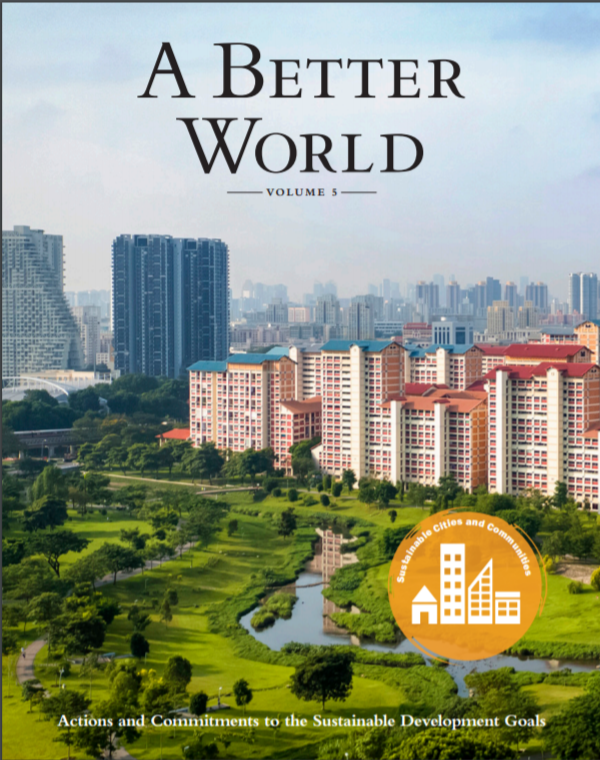
To make the deal more dodgy, the book is available to be downloaded online for free.
We're also unsure if it would really cost RM3.14 million to run a "Pameran Khazanah Hutan Negara" campaign by the Ministry of Water, Land and Natural Resources, or the RM7.2 million spent for the "Karnival Usahawan Desa Putrajaya" since we don't know how big the event was or what it involved, but we hope the authorities will look into anything that looks suspicious to them.
In the same press statement where the 101 projects were listed, the Ministry has explained that projects can be awarded through direct negotiations with the approval of the Finance Ministry under Section 6 (1) of the Financial Procedure Act 1957 (Revised 1972).
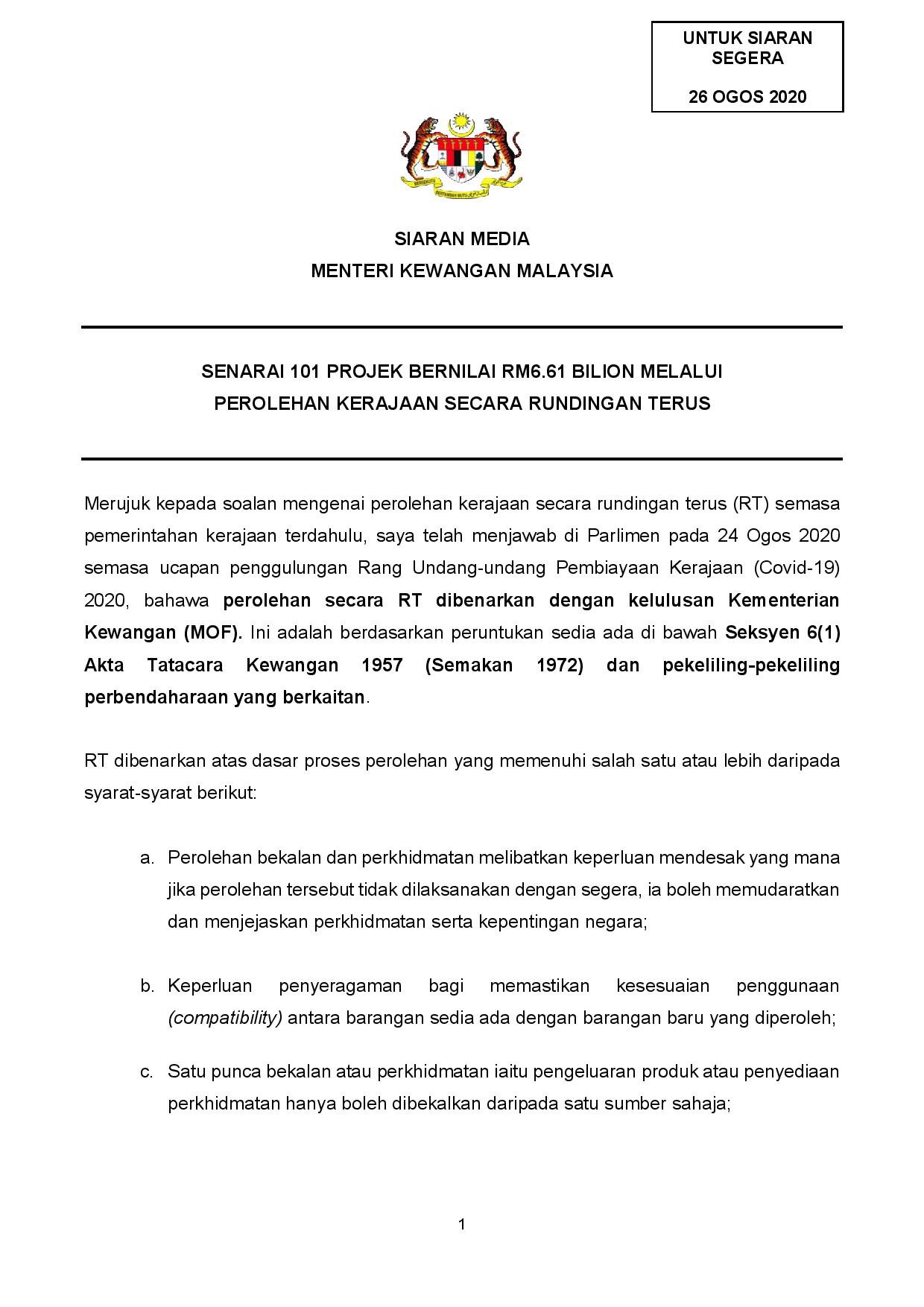 There are guidelines to this, of course, which includes an urgent need for a service whereby if the services aren’t procured immediately, it will cause adverse effects; the need for compatibility of products bought to that already owned; there’s only one source where the products or services are available; and if the contract was given to a Bumiputera-owned company that fulfils relevant criteria.
There are guidelines to this, of course, which includes an urgent need for a service whereby if the services aren’t procured immediately, it will cause adverse effects; the need for compatibility of products bought to that already owned; there’s only one source where the products or services are available; and if the contract was given to a Bumiputera-owned company that fulfils relevant criteria.
However, during PH’s tenure as the government, it had promised to stop giving projects via direct negotiations.
In its manifesto, the party had said that it will only award projects through tenders and will practice clean accountability and transparency.
The main question that the revelation raised at the parliament sitting on 24 August was the failure of the party to keep to its promises.
However, according to former finance minister Lim Guan Eng, only RM332 million of the overall direct negotiation contracts were given by PH. The rest were already in place during BN’s rule.
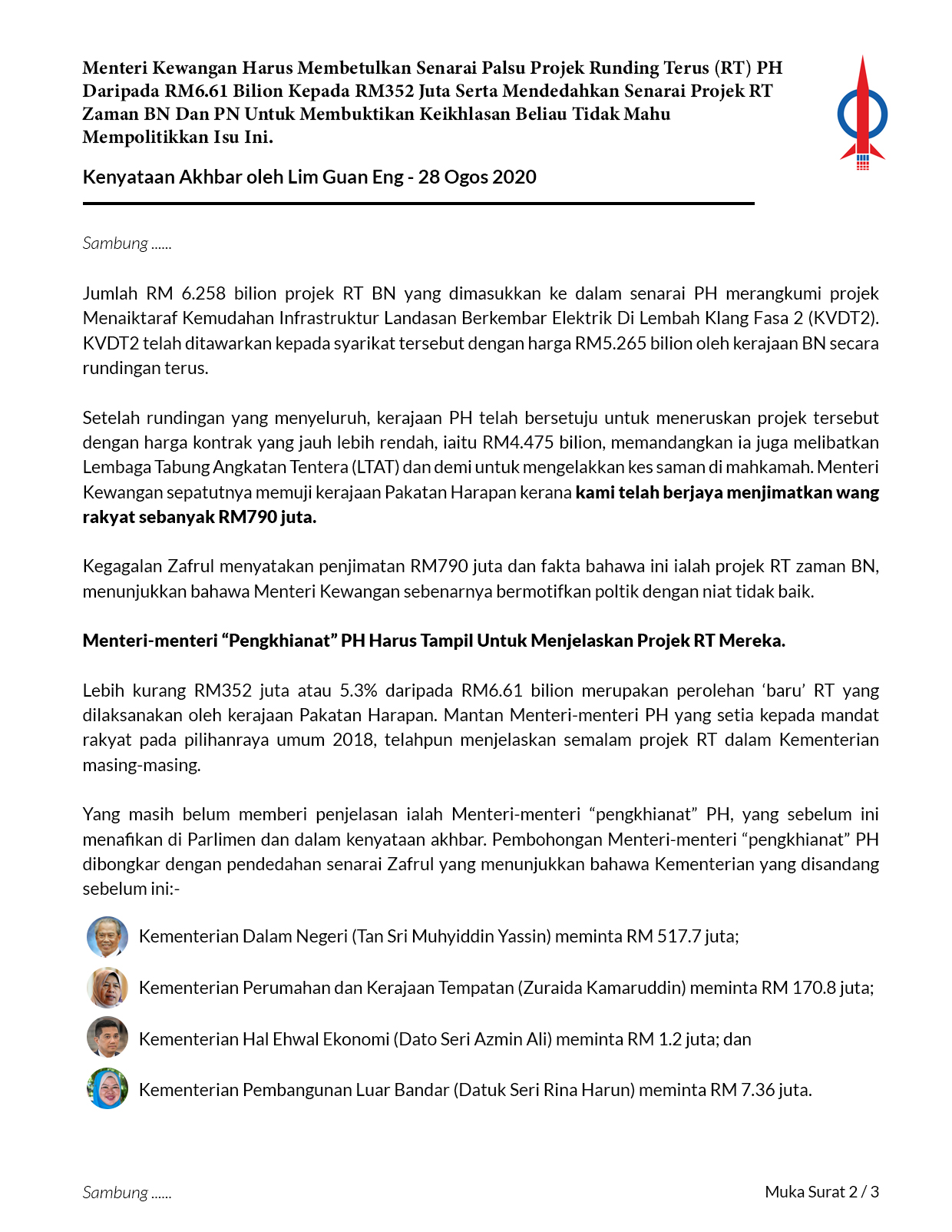
If what PH’s claims that almost all of the direct negotiation projects were true, guess they somewhat managed to keep to their promise.
However, MACC is reportedly looking at the list and investigating it so let’s hope that they will detect any corruption elements regardless of members of which party was involved.
With everything that’s happening, it’s pretty hard to keep up but since the country’s governance affects all of us, we have to at least try.
The latest in the saga is the issue of 101 projects awarded through direct negotiation during the Pakatan Harapan (PH) tenure amounting to RM6.6 billion.
#SesiParlimen Sorotan Sesi Penggulungan Kementerian Kewangan – RUU Langkah-Langkah Sementara bagi Pembiayaan Kerajaan (COVID-19) 2020:⠀
— Tengku Zafrul (@tzafrul_aziz) August 25, 2020
⠀
(2/3) Rundingan Terus & Kriteria Pelaksanaan pic.twitter.com/80YDRR99S4
PH has since come out and said that the bulk of the contract given through direct negotiations wasn't by them, but what started the whole drama?
What is a direct negotiation?
Before we get into that, let us briefly explain what direct negotiation is.Direct negotiation, in this context, simply means a project was given to a company without them having to go through an open tender process where multiple companies get to give their quotations and the government pick the best out of the ones presented.
Although direct negotiation is not illegal, it does open up the possibility of cronyism, corruption and other probems.
Why are people suddenly speaking about the projects?
.jpg)
Finance Minister Tengku Zafrul Aziz mentioned the direct negotiation projects during his winding-up speech of the Temporary Measures for Government Financing (COVID-19) 2020 at the parliament last week, pointing out that PH government had promised to stop such practices.
He, however, also clarified that all the projects followed the direct negotiation exception rules (we’ll explain this later).
War of words started, with PH members asking the minister to release the full list, to which he did about two days later:

What can we learn from the list?
Siaran Media - Senarai 101 Projek Bernilai RM6.61 Bilion Melalui Perolehan Kerajaan Secara Rundingan Terus⠀
— Tengku Zafrul (@tzafrul_aziz) August 26, 2020
⠀
Bertarikh 26 Ogos 2020 pic.twitter.com/o4gjIxFrRe
It’s a long list and for the most part, we couldn’t determine if the price paid were fair.
Maybe some day we will get in touch with the dozens of experts we will have to contact to get more clarification but for today, let’s just look at the most talked about points and some that we found just a little bit weird.
The bulk of the RM6.6 billion project involves the Transport Ministry, with RM4.48 billion worth of projects parked under their Ministry. Out of that, RM4.47 billion Klang Valley double-tracking project that went to Dhaya Maju LTAT Sdn Bhd.
According to former transport minister Anthony Loke, the project was not approved by PH, but was approved by the Barisan Nasional government in 2018.

He had also said that the original contract was priced at around RM5.26 billion, but the amount was reduced by 15 per cent after re-negotiations when the government changed hands.
The rest of the amount went towards three other projects, including the Langkawi International Maritime and Aerospace Exhibition (LIMA).
The Defence Ministry used up the second highest amount at RM900.86 million, for six projects involving aircraft maintenance.
This is followed by the Home Ministry which spent over RM500 million on eight projects.

There doesn’t seem to be any hanky-panky when it comes to the Ministries that have spent a lot on direct negotiation projects but let’s wait for the Malaysian Anti-Corruption Commission (MACC)’s report before we decide either way.
Although most of the projects in the list seem like it will survive scrutiny (again, it's best that we wait for the report), some are still questionable.
One of the most discussed projects is the buying of “A Better World: Actions and commitments to the Sustainable Development Goals Volume 5” by the Economic Affairs Ministry, which was then headed by Datuk Seri Mohamed Azmin Ali, which cost about RM21,000.

To make the deal more dodgy, the book is available to be downloaded online for free.
We're also unsure if it would really cost RM3.14 million to run a "Pameran Khazanah Hutan Negara" campaign by the Ministry of Water, Land and Natural Resources, or the RM7.2 million spent for the "Karnival Usahawan Desa Putrajaya" since we don't know how big the event was or what it involved, but we hope the authorities will look into anything that looks suspicious to them.
Is direct negotiation illegal?
The simple answer is, nope. Finance Minister Tengku Zafrul has also made this point clear.In the same press statement where the 101 projects were listed, the Ministry has explained that projects can be awarded through direct negotiations with the approval of the Finance Ministry under Section 6 (1) of the Financial Procedure Act 1957 (Revised 1972).
 There are guidelines to this, of course, which includes an urgent need for a service whereby if the services aren’t procured immediately, it will cause adverse effects; the need for compatibility of products bought to that already owned; there’s only one source where the products or services are available; and if the contract was given to a Bumiputera-owned company that fulfils relevant criteria.
There are guidelines to this, of course, which includes an urgent need for a service whereby if the services aren’t procured immediately, it will cause adverse effects; the need for compatibility of products bought to that already owned; there’s only one source where the products or services are available; and if the contract was given to a Bumiputera-owned company that fulfils relevant criteria.However, during PH’s tenure as the government, it had promised to stop giving projects via direct negotiations.
In its manifesto, the party had said that it will only award projects through tenders and will practice clean accountability and transparency.
The main question that the revelation raised at the parliament sitting on 24 August was the failure of the party to keep to its promises.
However, according to former finance minister Lim Guan Eng, only RM332 million of the overall direct negotiation contracts were given by PH. The rest were already in place during BN’s rule.

If what PH’s claims that almost all of the direct negotiation projects were true, guess they somewhat managed to keep to their promise.
What now?
Well, at this point it just looks like both sides are trying to gain political points and take a dump at each other.However, MACC is reportedly looking at the list and investigating it so let’s hope that they will detect any corruption elements regardless of members of which party was involved.





